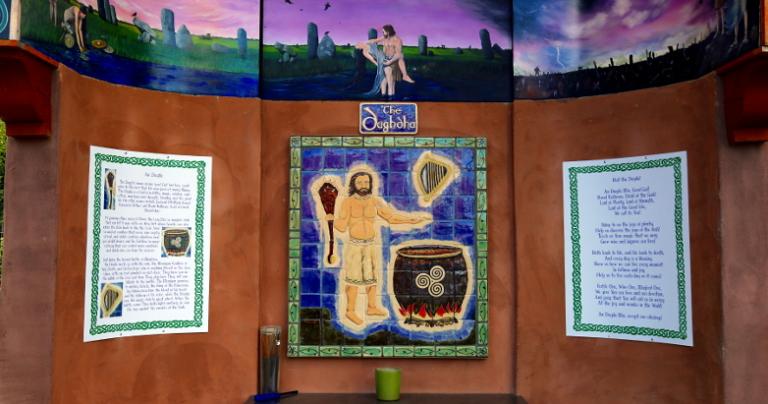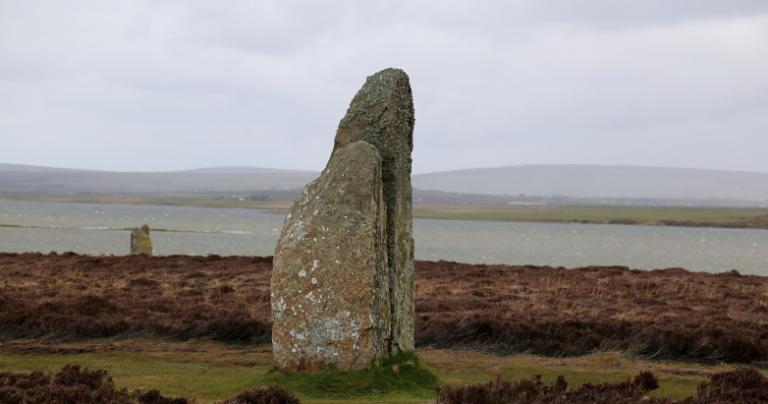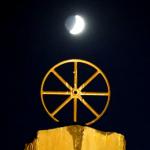Over the past couple weeks, I’ve heard several people make the statement “all religion is mythology.”
No. Mythology is an important part of religion, but it is far from the only part.
The idea that religion is mythology is the bastard child of Protestantism and atheism. Protestantism invests ultimate authority in the written word, while atheism insists the Gods and spirits described in the written word aren’t real. “Religion is mythology” allows atheo-protestants to hang on to stories that are undeniably meaningful and helpful, while ripping them out of their animistic and theistic context and replanting them in the academically acceptable ground of psychology and sociology. 1
It’s also an attempt to erase the very real and very meaningful differences between religions. “It’s all mythology” is another way of saying “deep down all religions are the same.” That approach sounds nice to those who are disturbed (and rightly so) by religiously motivated violence. But it ignores critical differences in foundational assumptions and operating values that go far beyond “be nice to each other.”
Myths are an important part of religion, but they’re far from the only part.

Myths
“Myths are things which never happened, but always are.” This quote originated with the late Roman period writer Sallustius, and it’s as true now as it was then. Myths teach truth. The statement “all myths have an element of truth in them” is poorly worded. Myths may – or may not – have an element of historicity in them, but historicity and truth are not the same thing.
Myths are stories to live by. They tell us who we are, where we came from, and where we belong. They tell what’s important in life – they communicate values. They tell us something about the nature of Gods and heroes – they communicate virtues. Despite what Joseph Campbell taught, no myths are universal to all of humanity. But the presence of myth is universal, or very nearly so.
I’m currently re-reading Star.Ships by Gordon White. It examines the spread of myths around the world and compares it with evidence from archaeology, genetics, and linguistics to paint a fairly accurate picture of the prehistorical migrations of humans out of Africa. These myths were – and are – so important to people that they’ve been preserved for tens of thousands of years despite the lack of writing for most of that period.
Given this importance, it’s no surprise myths are one of the foundations of religion. But they’re not the only foundation.
Non-mythological elements of religion
When we abandon the bad assumption that religion is all about what you believe, we start to see there’s a lot more to religion than the written word.
Religion has cultural elements: Sikhs wear turbans and Jews don’t eat pork. Traditionally black Christian churches have one style of gospel music and traditionally white Southern churches have another. Religion has political elements: walk into the First Baptist Church of Dallas and you’ll hear one brand of politics being preached – walk into First Unitarian Church and you’ll hear something very different.
Most importantly, religion has elements of spiritual practice: Muslims pray five times a day and Buddhists meditate. Catholics pray the rosary and Baptists go to bible study. Pagans do all kinds of things: I pray, meditate, make offerings to my Gods and ancestors, and study both religious and secular materials to deepen my understanding of the world and my place in it.
All of these things are done because the practitioners believe certain things about them, and those beliefs are often explained by myths. But they are not things to be believed – they are things to be done. They are not mythology.

Real Gods cannot be reduced to mythology
Myths are one of the ways we know about the Gods. But we also know about the Gods from our first-hand experiences of Them, and from the first-hand experiences of our co-religionists.
We pray to Them and They answer. Or They don’t, which is an answer in itself. Sometimes They speak to us. Our mainstream culture (and sadly, much of the Pagan movement) has no context for hearing a God – it assumes you’re either crazy or you’re making it all up. But while we can and should debate what it means to experience a God first-hand, that we have these experiences is undeniable. How you respond is up to you, but remember that not responding is also a response.
Mythology can help us interpret our religious experiences. It can give us insight into what our ancestors thought about their religious experiences, and provide context for ours. Lore vs. UPG (unverified personal gnosis) is a false dichotomy – a whole religion needs both.
The study of the Gods is theology. Theology is not an exclusively Christian field – the polytheistic Greeks were doing it long before there was a Christianity. It incorporates input from experience, philosophy, and logic. The statement “all religion is mythology” denies the place of theology in religion.

Animism is not mythology
Many myths have an animistic context – they feature characters such as talking animals and walking trees. This reflects the intuitive observation that whatever animates you and me also animates birds and squirrels and rivers and trees. We can relate to all these beings not as things but as persons, even though they’re not human persons. They have their own inherent value and worth that does not depend on their usefulness to humans.
“Religion is mythology” ignores the animistic context of these myths. It makes these stories all about us and ignores the agency of non-human persons – their ability to do their own things for their own reasons.
Though my animism is a spirit-filled animism, that’s not a requirement. Animism works just fine as non-theistic, naturalistic worldview. As with so much else, it relies on our actions, not on our beliefs.
Good religion is uncomfortable
Trying to turn religion into mythology makes religion more comfortable. Though myths are true stories (i.e. – they communicate truth) for the most part they are fictional stories. Labeling something as fiction gives us permission to ignore the parts we don’t like… the parts that scare us… the parts that call us to take on devotions and quests and projects that are long, difficult, and dangerous.
Comfortable religion is weak religion. It tells us everything is OK the way it is, or at least it would be if other people would stop screwing it up. It demands nothing of us beyond what we already want to give.
Good religion is challenging. The challenges are different for all of us – what seems easy to you may be impossible for me, and vice versa. Good religion is uncomfortable, and at times dangerous. Anything worthwhile requires labor and carries risk.
So study the mythology of your religion, whatever it may be. See what truths your sacred stories can teach you.
But then remember there is far more to religion than mythology.

1 To be clear: I am not attacking either Protestantism or atheism. Both are valid paths. I’m attacking the unreflective combination of the Protestant sola scriptura with the atheist insistence that there are no Gods or spirits. It is a mixture unworthy of either tradition.















